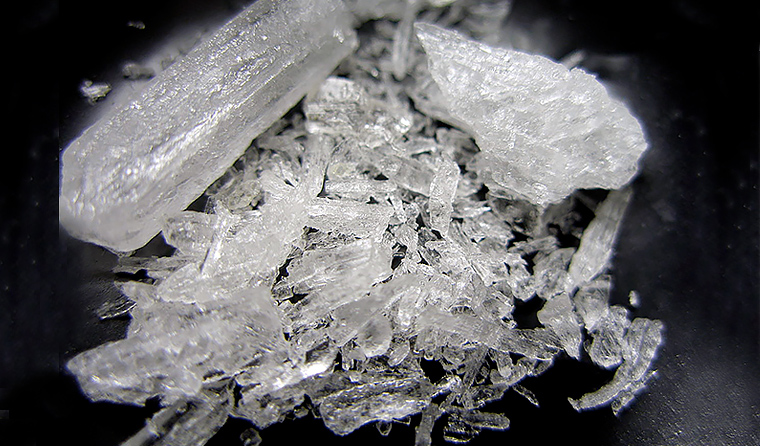News
GP questions usefulness of NSW ice inquiry
The NSW Government has announced a Special Commission of Inquiry into the use of ice, but Dr Hester Wilson has doubts about its impact.
 Will the NSW Government’s newly announced Special Commission of Inquiry into ice make a difference to the problems it has caused in the community? (Image: Joel Carrett)
Will the NSW Government’s newly announced Special Commission of Inquiry into ice make a difference to the problems it has caused in the community? (Image: Joel Carrett)
New South Wales Premier Gladys Berejiklian and Minister for Health Brad Hazzard earlier this week announced the establishment of a Special Commission of Inquiry (the inquiry) into crystal methamphetamine, or ice.
‘Ice is a destructive drug that is ruining too many lives across NSW, especially in our regional centres,’ Premier Berejiklian said.
‘We are establishing a powerful Special Commission of Inquiry because we want every option on the table to bolster our existing efforts to combat the evolving threat of this dangerous, illegal drug – and to get help for those who need it.’
The NSW inquiry will focus on three key issues:
- The nature, prevalence and impact of ice in NSW
- The adequacy of existing measures to tackle ice in NSW
- Options to strengthen NSW’s response to ice, including law enforcement, education and treatment/rehabilitation responses.
However, Dr Hester Wilson, GP and Chair of the RACGP Specific Interests Addiction Medicine network, is impatient with the declaration of another inquiry.
‘We’ve seen a lot of them and I’m not sure that they’ve made much difference,’ she told
newsGP.
Dr Wilson acknowledges
that ice use presents an issue, particularly within regional communities, and that it tends to be used in a particularly high-risk way. But she also observed that the actual prevalence of ice use is
comparatively low, especially in relation to other, more widely-used and accepted drugs.
‘It does worry me that we make ice the scourge, but don’t deal with the more prevalent drugs,’ she said.
‘
Nearly 13% of our community are dependent on tobacco and two thirds of them will die from that use. Alcohol causes huge amounts of harm, not only to the individual but to our community.
‘The idea that we can just focus on one because it happens to be illegal and looks good politically is disappointing.’
 Dr Hester Wilson argues that an inquiry focusing solely on ice fails to properly address the broader issue of drug use.
Dr Hester Wilson argues that an inquiry focusing solely on ice fails to properly address the broader issue of drug use.
Dr Wilson hopes the inquiry will focus on a more health-based response, rather than a criminal one. However, she is not encouraged by past NSW Government reactions to other drug-related issues, such as the deaths at the recent
Defqon.1 musical festival.
‘[The] response to that is, “Let’s hit people harder, let’s put in more regulatory and more police, more sniffer dogs”, not having a sensible conversation around
pill testing, which is something that can actually save lives,’ she said.
‘We know that people will use drugs, they’ve always used drugs, and the prohibition approach does not work and causes harm.
‘So I’m sceptical that this government’s view, that has been very black and white around their approach, will endorse a reasonable conversation.’
Dr Wilson also believes that limiting the scope of the inquiry to ice alone will lessen its potential impact and its opportunity to help patients.
‘The approach for [dependency on] all of those drugs is the same, so the idea of limiting it to ice without having an overall strategy around limiting harm from drug and alcohol use is crazy to me,’ she said.
‘Ice can cause significant damage for individuals and communities, but it’s just one of the options; sometimes what happens is if people have a dependency, they will move to what’s available. So if suddenly ice is not available, they will move to whatever else is.’
Dr Wilson is also critical of the inquiry panel’s lack of GPs and drug and alcohol specialists.
‘If we’re going to have an inquiry, let’s have practising GPs involved who know about addiction, let’s have a drug and alcohol specialist, let’s have that real health and welfare approach,’ she said.
Dr Wilson believes that health professionals already know the existing problems – and what measures are required to help fix them.
‘We know that there isn’t enough treatment,’ she said. ‘We know that we need to look at developing new treatments, but also to make more treatment available for people; there is limited access to treatment and we need a workforce that can actually work in this area and treat more.
‘Residential rehabs are one option, but they don’t work for everybody, and we need to have other options as well.
‘We know that in terms of drug and alcohol treatment, there is limited capacity for all of our services, and putting more money into providing services and providing options for people, particularly in rural and regional areas.
‘For us in general practice, more support and more training to help us assist our patients is really important.
‘There are complex reasons why people use drugs, but this [inquiry] is a simplistic approach.’
ice methamphetamine new south wales Special Commission of Inquiry
newsGP weekly poll
Within general practice, do you think there are barriers to providing flu vaccinations? If so, what are they?